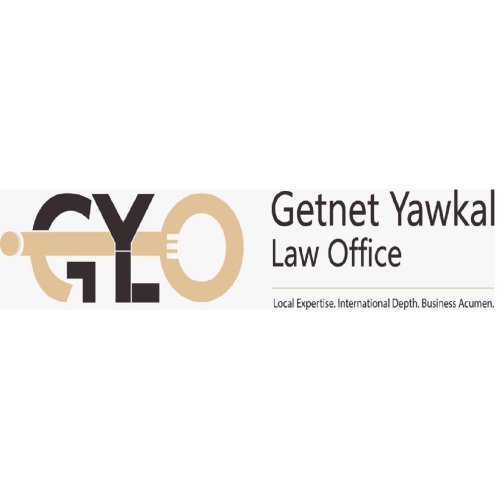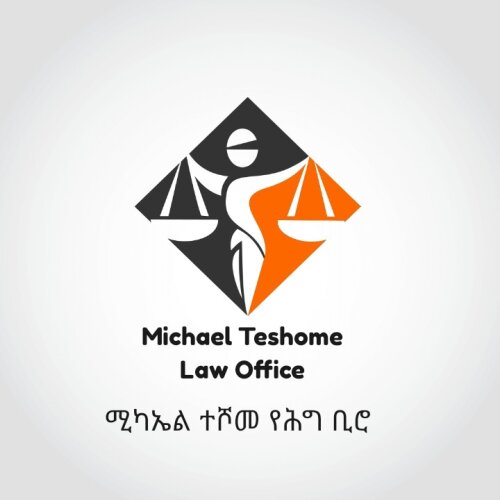Best Hiring & Firing Lawyers in Ethiopia
Share your needs with us, get contacted by law firms.
Free. Takes 2 min.
Or refine your search by selecting a city:
List of the best lawyers in Ethiopia
About Hiring & Firing Law in Ethiopia
Hiring and firing laws in Ethiopia are primarily governed by the Ethiopian Labor Proclamation. These laws are designed to ensure fair treatment for both employers and employees, establish employment standards, and manage workplace relationships. The laws cover a wide range of aspects including employment contracts, conditions for termination, notice periods, severance pay, and more. Employers are expected to comply with these laws to maintain a lawful and ethical workplace, while employees are protected against unjust termination and unsafe working conditions.
Why You May Need a Lawyer
Seeking legal advice is crucial in various hiring and firing situations. Employers may require legal assistance to ensure that their hiring practices conform to regulations, draft legitimate employment contracts, and terminate employees without breaching statutory requirements. Employees, on the other hand, may seek legal counsel to understand their rights, challenge unlawful dismissal, negotiate severance packages, or address workplace discrimination. A lawyer can provide clarity, help navigate complex legal frameworks, and represent your interests effectively.
Local Laws Overview
The key aspects of hiring and firing laws in Ethiopia include:
- Employment Contract: Must be written clearly, specifying job descriptions, terms of employment, and remuneration.
- Termination of Employment: Must be for valid reasons such as misconduct, capacity issues, or operational requirements. Unlawful termination may lead to compensation.
- Notice Period: The law stipulates a notice period which varies according to the length of service.
- Severance Pay: This is compulsory in cases of termination due to redundancy, retrenchment, or dissolution of the organization.
- Dispute Resolution: Labor disputes can be resolved through the labor office or courts if necessary.
Frequently Asked Questions
1. What constitutes unfair dismissal in Ethiopia?
Unfair dismissal occurs when an employee is terminated without valid reason or due process as required by law.
2. Is there a standard form for employment contracts?
While there is no standard form, contracts must include essential terms like job duties, working conditions, wages, and duration of employment.
3. How long is the probation period?
The probation period in Ethiopia should not exceed 45 working days.
4. What are the grounds for immediate termination?
Immediate termination is allowed for reasons such as gross misconduct, false information during hiring, or absenteeism without just cause.
5. Can an employee resign before the end of a contract?
Yes, an employee can resign but must provide the necessary notice unless resignation is for cause.
6. What obligations does an employer have when terminating an employee?
Employers must provide notice, pay outstanding wages, and comply with severance pay requirements if applicable.
7. What is the role of a labor union in hiring and firing?
Labor unions can represent employees in negotiations and disputes, ensuring fair treatment in hiring and firing practices.
8. Can an employee challenge a termination decision?
Yes, an employee can file a complaint with the labor office or seek legal redress in court.
9. What is constructive dismissal?
Constructive dismissal occurs when an employee resigns due to intolerable working conditions created by the employer.
10. What legal remedies are available for unfair dismissal?
Remedies may include reinstatement, compensation for lost wages, or payment of damages.
Additional Resources
For further assistance, you may contact the following:
- Ministry of Labor and Social Affairs (MOLSA): Offers guidance on labor laws and regulations.
- Federal Supreme Court of Ethiopia: Provides legal opinions and rulings on labor disputes.
- Local Labor Union Offices: Provide support and representation for employee grievances.
- Ethiopian Employers' Federation: Offers advice and support for employers on compliance and best practices.
Next Steps
If you need legal assistance in hiring and firing matters, consider the following steps:
- Consult a Labor Lawyer: Find a reputable lawyer who specializes in Ethiopian labor law for personalized advice.
- Contact Labor Authorities: Reach out to MOLSA or local labor offices for preliminary guidance.
- Prepare Documentation: Gather all necessary documents related to your employment or employment practices.
- Consider Mediation: Before legal action, consider mediation as a cost-effective way to resolve disputes.
By following these steps, you can better navigate the complexities of hiring and firing laws in Ethiopia and ensure a fair resolution to your situation.
Lawzana helps you find the best lawyers and law firms in Ethiopia through a curated and pre-screened list of qualified legal professionals. Our platform offers rankings and detailed profiles of attorneys and law firms, allowing you to compare based on practice areas, including Hiring & Firing, experience, and client feedback.
Each profile includes a description of the firm's areas of practice, client reviews, team members and partners, year of establishment, spoken languages, office locations, contact information, social media presence, and any published articles or resources. Most firms on our platform speak English and are experienced in both local and international legal matters.
Get a quote from top-rated law firms in Ethiopia — quickly, securely, and without unnecessary hassle.
Disclaimer:
The information provided on this page is for general informational purposes only and does not constitute legal advice. While we strive to ensure the accuracy and relevance of the content, legal information may change over time, and interpretations of the law can vary. You should always consult with a qualified legal professional for advice specific to your situation.
We disclaim all liability for actions taken or not taken based on the content of this page. If you believe any information is incorrect or outdated, please contact us, and we will review and update it where appropriate.
Browse hiring & firing law firms by city in Ethiopia
Refine your search by selecting a city.

















